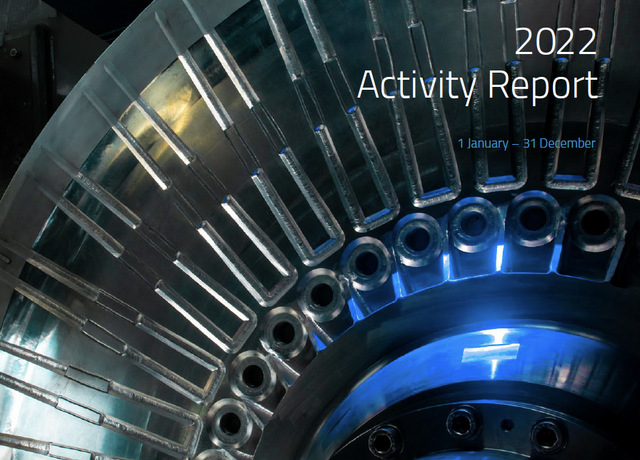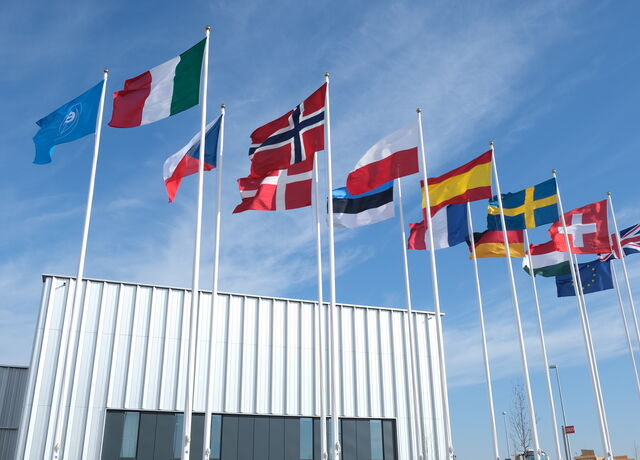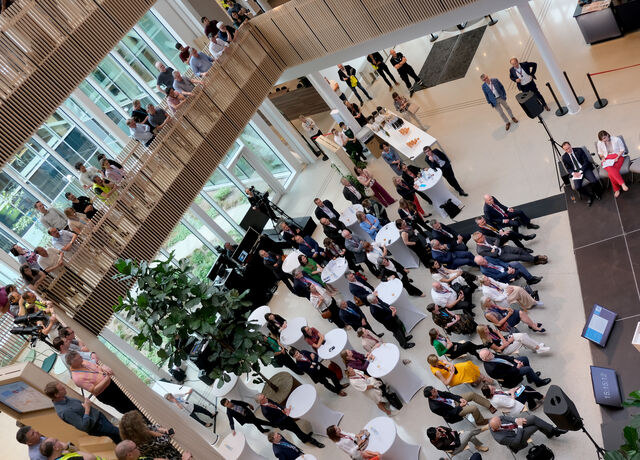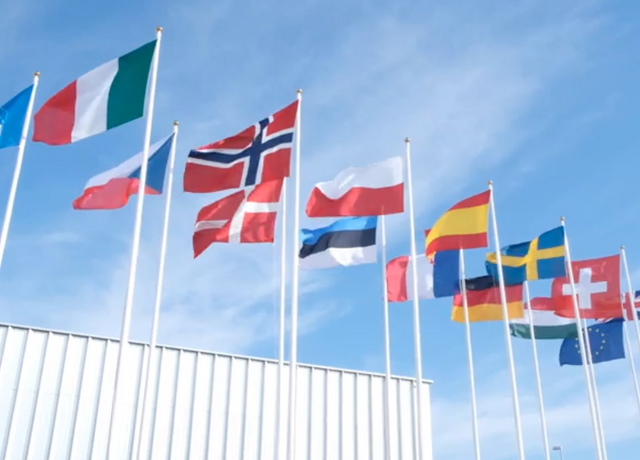Committees
ESS has a number of independent advisory committees who report to the ESS Council. Their mandate and delegates are presented below.
Administrative & Finance Committee - AFC
Composed of up to two delegates from each Member Country, the AFC advises the Council on all matters relating to administrative and legal issues and financial management. The Chair of the Committee is appointed by the Council.
The AFC oversees all major administrative and financial functions of ESS, and gives advice and recommendations for decisions to the ERIC Council.
The AFC's main duties include:
-
Monitoring and giving advice regarding organisational, financial legal and staff issues .
-
Reviewing documents for European Spallation Source ERIC Council meetings containing recommendations for decisions .
-
Reviewing and preparing recommendations regarding a legal framework and an administrative organisation for the ESS facility .
-
Working out rules and procedures for partners joining the facility and the ERIC Council at a later stage, e.g. during operation of the facility.
In addition, the AFC will, among other things, examine the plans for the procedures for in-kind contributions and the balance between cash and in-kind contributions, as well as the manpower and staff profiles for the construction and operation phases of ESS.
The AFC is composed of up to two delegates of each European Spallation Source ERIC Member Country. The Chair of the Committee is appointed by the ERIC Council.
- Chair
Johanna Brandenburg (Forschungszentrum Jülich, Germany) - Czech Republic
Magda Pektorová (Ministry of education youth and sports – MSMT) - Denmark
Morten Scharff (Ministry of Higher Education and Science – UFM)
Gustav Egeberg Nielsen (Ministry of Higher Education and Science – UFM) - Estonia
Priit Tamm (Research Council of Estonia) - France
Elisa Briere (Alternative Energies and Atomic Energy Commission – CEA)
Stéphanie Lê Vàn (National Centre for Scientific Research – CNRS) - Germany
Dirk Steinbach (Ministry of Education & Research – BMBF)
Johannes-Maria Wingen (Ministry of Education & Research – BMBF) - Hungary
László Nemes (National Research, Development and Innovation Office - NKFIH) - Italy
Antonella Tajani (National Research Council – CNR)
Ileana Gimmillaro (Elettra – Sincrotrone Trieste) - Norway
Odd Ivar Eriksen (The Research Council of Norway) - Poland
Michał Rybiński (Ministry of Science & Higher Education – MNiSW)
Dagmara Milewska (National Centre for Nuclear Research – NCBJ) - Spain
Guadalupe de Córdoba Lasuncion (Ministry of Science, Innovation and Universities)
Begoña Asumendi Anza (ESS Bilbao) - Sweden
Johan Holmberg (Swedish Research Council – VR)
Ingrid Wallenstein (Swedish Research Council – VR) - Switzerland
Simon Berger (State Secretariat for Education, Research and Innovation – SBFI) - United Kingdom
Philippa Kingston (UK Research and Innovation – UKRI)
Laura Woodward (UK Research and Innovation – UKRI)
AFC convenes twice a year, with the following dates scheduled:
- 2024: 23-24 April & 29-30 October
- 2025: 29-30 April & 4-5 November
- 2026: 28-29 April & 4-5 November
In-Kind Review Committee - IKRC
The IKRC is charged with the general responsibility of evaluating the in-kind contribution proposals and making recommendations thereupon to the Council. The Council approves all in-kind contracts based on these recommendations. Each country participating in the Council is represented in the IKRC by one delegate. The Chair and Vice-Chair are nominated by the Committee and approved by the Council.
The IKRC oversees all In-Kind Contributions (IKC) to ESS, including the corresponding implementation of rules and legal framework for the agreement, and implementation and final accreditation of IKC. The IKRC assesses the deliverables of the Work Packages as defined in the planned agreements, and evaluates whether those are in line with the ESS Programme Plan. Upon successful evaluation, the contracts are recommended for acceptance to the ERIC Council.
The Committee reviews issues related to the implementation of IKC and recommends actions to address any required changes that could affect the overall cost, scope, or schedule of the ESS project.
After delivery, the IKRC will perform a final review of the IKC and recommend it for final acceptance to the ERIC Council. Subject to this approval, the Member Country will be accredited the IKC value as part of its total contribution to ESS.
Each country participating in the ERIC Council is represented in the IKRC by one delegate. The Chair and Vice-Chair are nominated by the Committee and approved by the Council.
- Chair
Fiamma García Toriello (ESS Bilbao, Spain) - Czech Republic
Petr Šittner (Institute of Physics of the Czech Academy of Sciences – FZU) - Denmark
Niels Bech Christensen (Technical University of Denmark – DTU) - Estonia
Piret Pikma (Tartu University) - France
Arsen Goukassov (Laboratoire Léon Brillouin – LLB) - Germany
Tania Claudio Weber (Forschungszentrum Jülich, Vice Chair) - Hungary
Viktória Sugár (Óbuda University) - Italy
Giuseppe Gorini (University of Milano-Bicocca) - Norway
Erik Wahlström (Norwegian University of Science and Technology – NTNU) - Poland
Dariusz Bocian (Institute of Nuclear Physics of the Polish Academy of Sciences – IFJ-PAN) - Spain
Félix Jimenez Villacorta (ESS Bilbao) - Sweden
Jens Birch (Linköping University) - Switzerland
Peter Allenspach (Paul Scherrer Institute – PSI) - United Kingdom
Matt North (Science and Technology Facilities Council - STFC)
Scientific Advisory Committee - SAC
The SAC consists of outstanding scientists not employed by or otherwise immediately connected with ESS, and advises the Council in scientific matters and other matters of importance for ESS. The members of the SAC and its Chair are appointed by the Council.
The Scientific Advisory Committee (SAC) is an independent advisory committee providing advice and giving recommendations to the ESS project. The SAC independently assesses the scientific goals and the overall layout, and advises on the scientific objectives, of ESS.
The SAC provides independent advice, in particular, on all relevant scientific and technical issues related to the instrument suite and the desired characteristics of the neutron beams and the accelerator performance, as well as facilities for scientific support and the scientific operation of the facility.
The SAC is composed of potential users from the science communities that will use ESS neutron beams, and scientists with expertise in neutron scattering methods, and represents the user community at large.
The SAC reports to the European Spallation Source ERIC Council. Members of the SAC are outstanding scientists not employed by or otherwise immediately connected with ESS. The members of the SAC and its Chair are appointed by the Council.
- Chair
Victoria García Sakai (Science & Technology Facilities Council – STFC, UK) - Vice Chair
Elizabeth Blackburn (Lund University, Sweden) - Members
María Teresa Fernandez-Diaz (Institut Laue-Langevin - ILL, France)
Fabrice Cousin (Laboratoire Léon Brillouin– LLB, CEA Saclay, France)
Maria Paula Marques (University of Coimbra, Portugal)
Annette Eva Langkilde (Copenhagen University, Denmark)
Jacqueline Cole (University of Cambridge, UK)
Martin Sahlberg (Uppsala University, Sweden)
Anne Borg (Norwegian University of Science and Technology - NTNU, Norway)
Debora Berti (University of Florence, Italy)
Frank Schreiber (Universität Tübingen, Germany)
Ingo Manke (Helmholtz-Zentrum Berlin – HZB, Germany)
Hartmut Abele (Vienna University of Technology, Austria)
Romain Sibille (Paul Scherrer Institute - PSI, Switzerland)
Technical Advisory Committee - TAC
The TAC consists of outstanding experts not employed by or otherwise immediately connected with ESS, and advises the Council in technical matters and other matters of importance for ESS. The members of the TAC and its Chair are appointed by the Council.
The Technical Advisory Committee (TAC) is an independent advisory committee who provide advice and recommendations to the ESS project. The TAC provides independent advice, external moderation and assessment on the technical specification and goals to be achieved by ESS based on the most recent knowledge and experience worldwide.
The TAC deals with all technical aspects and parameters of the accelerator and target, moderators and ancillary systems, and the related infrastructure with a view to construct, operate and decommission the facility in Lund, as well as assessing the technical design of the facility and providing advice on how to optimise and improve its performance in accordance with the scientific goals.
The TAC is made up of representatives with international expertise in all technologies relevant to the production of neutron beams at ESS during all phases of the project, and who are appointed based on their expertise.
The TAC reports to the European Spallation Source ERIC Council. Members of the TAC are outstanding experts not employed by or otherwise immediately connected with ESS. The members of the TAC and its Chair are appointed by the Council.
- Chair
Mei Bai (SLAC National Accelerator Laboratory, USA)
Accelerator
- Co-Chair
Glen Johns (Oak Ridge National Laboratory – ORNL, USA) - Members
Alessandro Gallo (National Institute of Nuclear Physics – INFN, Italy)
Joachim Grillenberger (Paul Scherrer Institute – PSI, Switzerland)
Jonny Ranner (Science & Technology Facilities Council – STFC, UK)
Nicolas Pichoff (French Alternative Energies and Atomic Energy Commission – CEA, France)
Robin Ferdinand (Large Heavy Ion National Accelerator – GANIL, France)
Sara Thorin (MAX IV Laboratory, Sweden)
Controls
- Co-Chair
Cyrille Berthe (Large Heavy Ion National Accelerator – GANIL, France) - Members
Klemen Vodopivec (Oak Ridge National Laboratory – ORNL, USA)
Luis Fernandez-Hernando (Science & Technology Facilities Council – STFC, UK)
Target
- Co-Chair
Michael Dayton (Oak Ridge National Laboratory – ORNL, USA) - Members
Christian Nyfeler (Paul Scherrer Institute – PSI, Switzerland)
József Elter (Paks Nuclear Plant, Hungary)
Kevin Jones (Science & Technology Facilities Council – STFC, UK)
Mark Shaw (Science & Technology Facilities Council – STFC, UK)
Yannick Bessler (Forschungszentrum Jülich, Germany)
Chair's Committee - CC
The Chair's Committee (CC) provides advice to, and serves as a sounding board for, the Director General on emerging issues, challenges, and initiatives that ultimately may require the Council’s attention. The CC has no general decision-making mandate unless explicitly delegated this by the Council, which is on an ad-hoc basis.
Under reorganisation.
Committee on Employment Conditions - CEC
The Committee on Employment Conditions (CEC) monitor all aspects related to employment conditions on behalf of the Council, as well as provide advise to the Director general on employments conditions.
- Chair
Stéphanie Lê Vàn (National Centre for Scientific Research – CNRS, France) - Vice Chair
Martin Müller (Helmholtz-Zentrum Hereon, Germany) - Member
Martin Walter (Laue-Langevin Institute – ILL, France) - Host State Observers
Katarina Bjelke (Swedish Research Council – VR, Sweden)
Bo Smith (Ministry of Higher Education & Research, Denmark)
Project Advisory Committee - PAC
The PAC is composed of highly qualified and experienced experts relevant for project oversight of construction of large scientific or similar complex technical facilities but not employed by or otherwise immediately connected to the Organisation. The PAC members, including the PAC Chair, are appointed by Council.
The PAC's main duties include, amongst others:
- advice on all project management related issues
- monitoring effective and optimal use of the resources for fulfilling the goals of the project relating to cost, schedule, and scope, in particular for achieving first science
- indicate remedial actions needed to address any problems as they arise
- advice on project control, risk and contingency management
- Chair
Mark Reichanadter (former SLAC National Accelerator Laboratory, USA)
- Members
Alain Menelle (Laboratoire Léon Brillouin – LLB, France)
Diane Hatton (former Brookhaven National Laboratory – BNL, USA)
Karen White (Oak Ridge National Laboratory – ORNL, USA)
Lina Rodriguez Rodrigo (former CIEMAT/ITER, Spain/France)
Reinhard Brinkmann (consultant at Deutsches Elektronen Synchrotron – DESY, Germany)
Stephen Jago (Science & Technology Facilities Council – STFC, UK)
Thomas Klinger (Max Planck Institute for Plasma Physics – IPP-MPG, Germany)
Winfried Petry (consultant at Technical University of Munich – TUM, Germany)




























